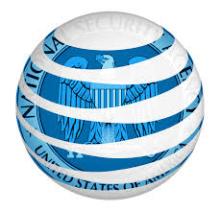
Fast, affordable Internet access for all.

It has been an open secret that AT&T maintained a cozy relationship with the NSA, but only recently has the extent of that relationship been revealed. AT&T had no qualms about illegally providing enough Internet traffic data to forge a relationship fondly described by the NSA as a "highly collaborative."
Edward J. Snowden provided documents chronicling the relationship; ProPublica and the New York Times reviewed them jointly. In that information:
One document reminds N.S.A. officials to be polite when visiting AT&T facilities, noting, “This is a partnership, not a contractual relationship.”
It provided technical assistance in carrying out a secret court order permitting the wiretapping of all Internet communications at the United Nations headquarters, a customer of AT&T.
The NSA’s top-secret budget in 2013 for the AT&T partnership was more than twice that of the next-largest such program, according to the documents. The company installed surveillance equipment in at least 17 of its Internet hubs on American soil, far more than its similarly sized competitor, Verizon. And its engineers were the first to try out new surveillance technologies invented by the eavesdropping agency.
Whether or not those data gathering programs still operate today is unclear. While AT&T is not identified by name in the documents provided by Snowden, former intelligence officers and corroborating evidence strongly suggest that the telecom giant is the company that exhibited an "extreme willingness to help" the NSA collect information for the Fairview program.
Unsurprisingly, the terrorists attacks of September 11, 2001, stepped up activity within these programs. AT&T responded to warrantless surveillance "within days" by handing over emails and phone calls, according to the documents provided by Snowden. We doubt they did so out of patriotism, given their past enthusiasm to rip off local 9-11 centers. Verizon and MCI also participated but no other company accommodated the NSA so willingly or quickly as AT&T.
The report also documents how AT&T repeatedly goes the extra mile to please an overreaching government agency over the course of several decades. Including this, among other activities:
In September 2003, according to the previously undisclosed NSA documents, AT&T was the first partner to turn on a new collection capability that the NSA said amounted to a “‘live’ presence on the global net.” In one of its first months of operation, the Fairview program forwarded to the agency 400 billion Internet metadata records — which include who contacted whom and other details, but not what they said — and was “forwarding more than one million emails a day to the keyword selection system” at the agency headquarters in Fort Meade, Maryland.
It was an earlier New York Times investigation that revealed NSA equipment installations at 17 AT&T facilities. The arrangement allowed the NSA a reach beyond AT&T customers due to peering agreements with other providers. AT&T was not only willing to hand over information on its own customers, but also eager to provide data from other providers' customers. Why not?
In an effort to make the NSA's workload lighter, it seems, AT&T even took on some of the surveillance labor itself.
Many privacy advocates have suspected that AT&T was giving the NSA a copy of all Internet data to sift for itself. But one 2012 presentation says the spy agency does not “typically” have “direct access” to telecoms’ hubs. Instead, the telecoms have done the sifting and forwarded messages the government believes it may legally collect.
“Corporate sites are often controlled by the partner, who filters the communications before sending to NSA,” according to the presentation. This system sometimes leads to “delays” when the government sends new instructions, it added.
When the story of NSA spying first broke back in 2013 we noticed an article in the Guardian about Pete Ashdown from Xmission, one of the providers on the UTOPIA network. He was asked about customer data and privacy in this type of situation. There is a proper procedure and unlike lapdog AT&T, local providers with ties to their customers and the communities they serve, appreciate the gravity of their actions. When asked for private data by local, state, or federal officials:
"I would tell them I didn't need to respond if they didn't have a warrant, that (to do so) wouldn't be constitutional," the founder and chief executive, Pete Ashdown, said in an interview at his Salt Lake City headquarters.
Since 1998 he rejected dozens of law enforcement requests, including Department of Justice subpoenas, on the grounds they violated the US constitution and state law. "I would tell them, please send us a warrant, and then they'd just drop it."
The response is much different over at AT&T. When asked to about the information in the documents:
“We don’t comment on matters of national security,” an AT&T spokesman said.
They may not comment on it, but they sure do have an opinion. And an impact. When just one firm can single-handedly collect so much data and hand it over to the government without a clear legal process, we have a problem.
Image courtesy of the Electronic Frontier Foundation and licensed through Creative Commons.
